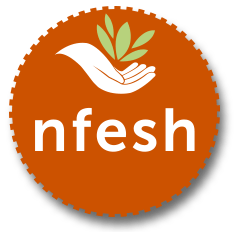Senior Center(ed) Community College - Main Campus

The Senior Center(ed) Community College is a college expressly designed with you in mind. These courses were created for those who work for and on behalf of our nation’s seniors.
Course List

Learning Objective:
The learner will get a better understanding of the fundamentals of raising funds for their senior center and congregate nutrition program in order to expand programming and serve more seniors.
Course Significance:
Fundraising should be considered a major component of the mission of your center and nutrition program. There are not many nonprofit organizations that have the luxury of not having to raise outside funds in order to remain solvent. The economic climate of today and into the future will necessitate that all nonprofits (and that even includes senior centers and congregate nutrition programs) must view fundraising as an opportunity to engage their local community and its citizens as partners in the great work they do. Fundraising brings together an entire community and ignites the passions of those who would otherwise take the services that you are offering for granted.

Learning Objective:
The learner will get a better understanding of the significance of how important the three components of food safety are in congregate nutrition programs. Proper food safety measures in storage, preparation and serving will be addressed in this course.
Course Significance:
Food safety is important for everyone. It is especially important for those working in congregate nutrition programs because the clients are seniors. It is a fact that older adults are at a higher risk for hospitalization and death fro food borne illness. This increased risk of food borne illness is because organs and body systems go through changes as people age. For example: the gastrointestinal tract holds onto food for a longer period of time, allowing bacteria to grow. The liver and kidneys may not properly rid the body of foreign bacteria and toxins. The stomach may not produce enough acid. The acidity helps to reduce the number of bacteria in our intestinal tract. And, underlying chronic conditions, such as diabetes and cancer, may also increase a persons risk of food borne illness.
Watch this introduction to HR content before tackling the HR courses. It will help give you a quick background on HR and why these courses are so critical to your work.
Learning Objective:
The learner will be getting a better understanding of employee handbooks and their importance
Course Significance:
It is critical that employers, managers and employees are on the same page. An important HR tool that helps to make this a reality is the employee handbook. In this course, you will learn about personnel policies, employee benefits, working conditions, work rules, and why having everything spelled out in an employee handbook is good for everyone.
Learning Objective:
The learner will be getting a better understanding of the entire screening and hiring process from identifying a need through new hire orientation.
Course Significance:
Filling needs within your organization is not simple. From defining the role you are trying to fill, identifying candidates, interviewing potential hires, to new hire orientation, screening and hiring can be a long and difficult process. This course will give you best practices for navigating this entire process including how to stay ADA compliant and do reference and background checks. Successfully mastering this course can help you attract and hire great new team members.
Learning Objective:
The learner will be getting a better understanding of basic employment law. Some of the areas that will be discussed are: ADA compliance, unemployment, and hourly versus full-time employees.
Course Significance:
Laws like the Federal Labor Standards Act (FLSA), the Family Medical Leave Act (FMLA), and the Americans with Disabilities Act (ADA) impact every company in this country, including your organization. This course will help you with a basic understanding of these regulations and how they may impact your organization. This course not only helps you learn what you need to know, it will help you to identify where and when you need to ask more questions of a legal professional.
Learning Objective:
The learner will get a better understanding of the preparation and planning that goes into employee performance management.
Course Significance:
Coaching your employees, including proper discussions about their performance can lead to great individual success and advancement. This type of coaching throughout an organization translates to team success. The unfortunate flip side is that a lack of coaching or poor coaching can lead that same individual down a path that leads to their termination.
Learning Objective:
The learner will get a better understanding of financial literacy, how cash flows through their organization and the importance of maintaining an operating surplus.
Course Significance:
Every senior center director or senior nutrition program manager has felt the pressure of not having enough money to do what they think needs to be done. They often feel helpless, or powerless, not knowing how to make things better. That helpless feeling is almost always a result of not knowing what to do or how to make things better. This series of courses will help address that feeling of helplessness. It is designed to give you additional knowledge about your organization’s finances, new skills to help you manage those finances, and change your perspectives and attitudes about finances. With improved knowledge, skills and attitudes, we can change our behaviors and those of the people we work with in order to make sound financial decisions for our organizations.

